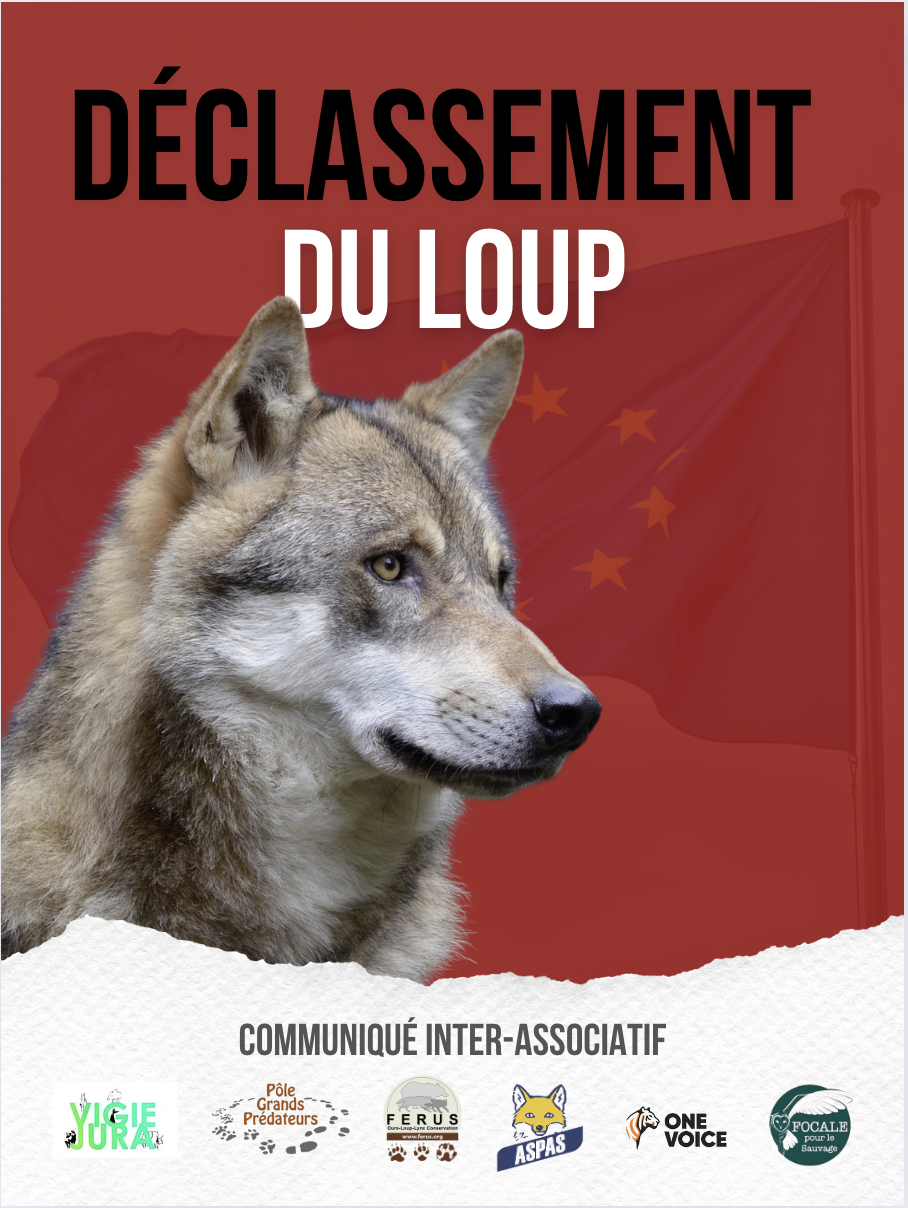

Protection status for wolves: the European Commission's decision is a serious setback for the conservation of the species and biodiversity
We, associations committed to the protection of wildlife and biodiversity (ASPAS, FERUS, Focale pour le Sauvage, One Voice, Pôle Grands Prédateurs and Vigie Jura), firmly denounce the European Union’s recent decision of September 25, 2024 to downgrade wolves from a “strictly protected” to a “protected” species. This measure, which denies international conventions and validates the lowering of wolf conservation regulations in Europe, runs counter to decades of efforts to preserve this essential species and its role in the balance of our natural ecosystems.
Wolves: a keystone species in our biodiversity
Wolves are an essential species to the regulation of large herbivore populations, contributing to habitat diversity and forest health. Their gradual return to Europe and their presence in our forests, although contested by some, help to restore an essential natural balance in the ecosystems of several regions, disperse herbivores and thus promote forest regeneration. These animals have been the subject of rigorous protection policies, which have proved effective in enabling their populations to recover and once again play their essential ecological role. The downgrading of wolves from their strictly protected status jeopardizes the conservation efforts undertaken over several decades, as well as the lupine population, which is considered to be in poor condition by the International Union for Conservation of Nature (IUCN).
An irresponsible and dangerous political decision
The European Union’s decision is not only a blow to biodiversity preservation policies, but also a simplistic response to economic pressure from agricultural lobbies that advocate productivist farming and support farmers who refuse to adopt solutions for coexistence with wolves.
Rather than reinforcing programs to help, raise awareness and support farmers in protecting their flocks in a sustainable way, this decision favors the path of ecological regression. It sets a dangerous precedent which risks leading the European Union to accept other environmental regressions (lynx, beavers, bears, cetaceans, etc.). This position quite simply negates all the work done by breeders in favor of cohabitation, and the public expenditure that has gone into setting up herd protection systems with the aim of harmonious cohabitation.
The impact of consumer choices
As consumers, we have a crucial role to play in protecting wolves and biodiversity. By supporting farming methods that respect wildlife, and by choosing products from farms committed to peaceful cohabitation with predators, we can directly influence agricultural choices. However, by continuing to support farmers who campaign for the eradication of wolves, we are contributing to the destruction of our shared natural heritage and the collapse of our ecosystems.
An emergency for European biodiversity in the midst of the 6th mass extinction
This irresponsible political decision comes at a critical time, when European biodiversity is already under serious threat. It sends out a dangerous message not only in France – where the decree of February 21, 2024 has already greatly relaxed the conditions for killing wolves – but throughout Europe. Giving in to short-term pressures at the expense of long-term conservation policies is a mistake with far-reaching ecological consequences.
We call on the European Union, member states and MEPs to reverse this decision and turn to sustainable solutions that reconcile wildlife protection and human activities. Wolves, who are already the subject of numerous derogations to their protection, must not see their protection status diminished, which would radically facilitate their slaughter.
Our actions and commitments
The associations signing this press release will continue to mobilize to defend wolves and biodiversity in the face of this new threat. We invite all European citizens to support this cause, to make enlightened food choices and to join us in our actions to ensure that Europe remains a land of coexistence and respect for Life.
It’s up to each and every one of us to call on our MEPs to ensure that the rights of living creatures are respected and that our common good is preserved: it’s in the general interest.